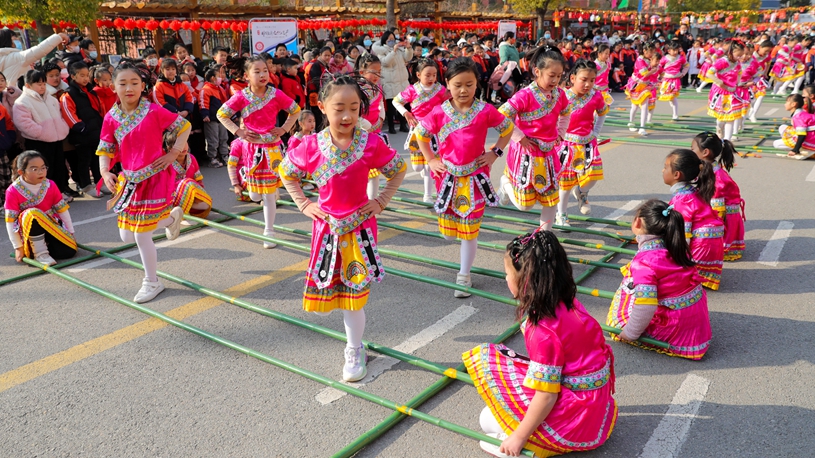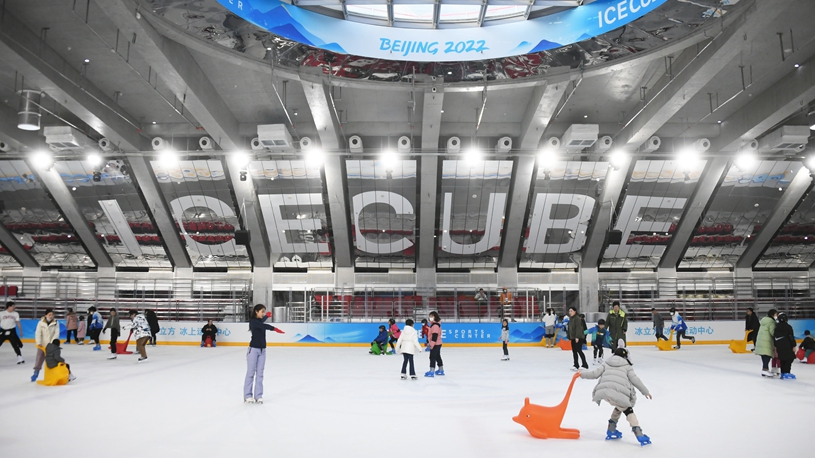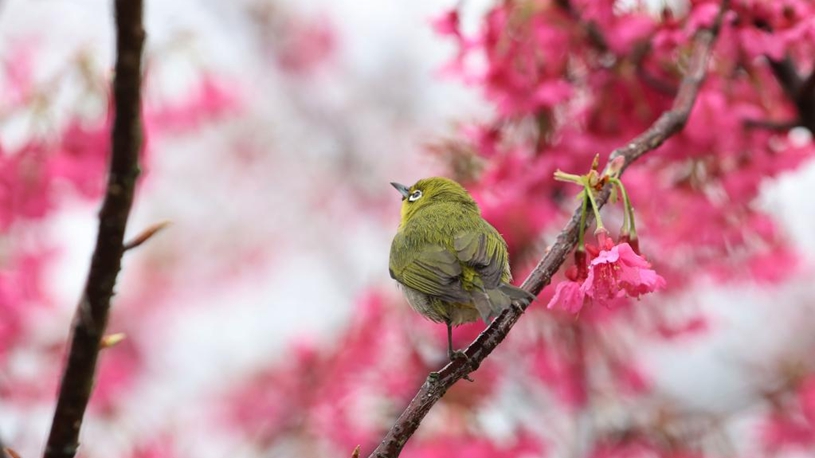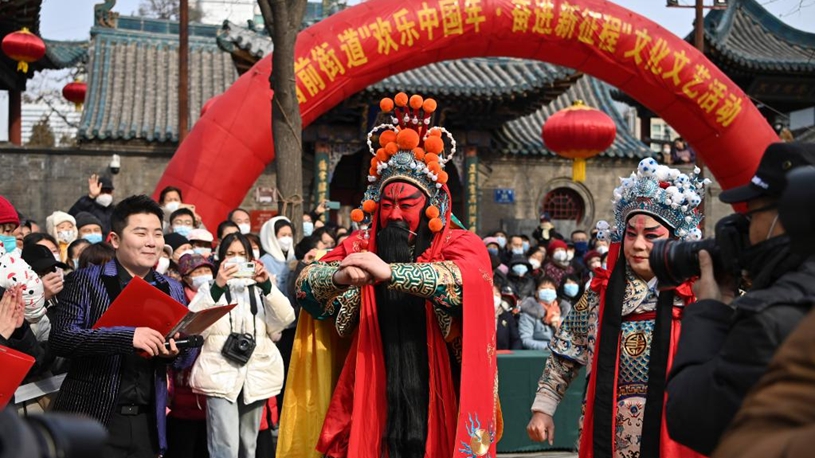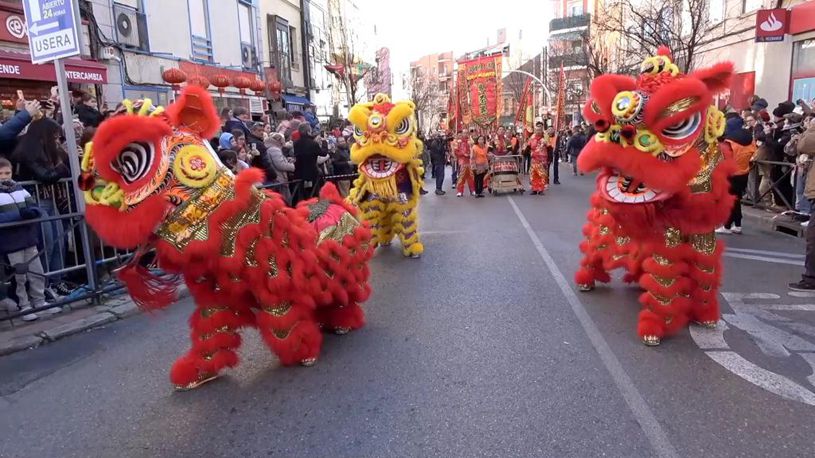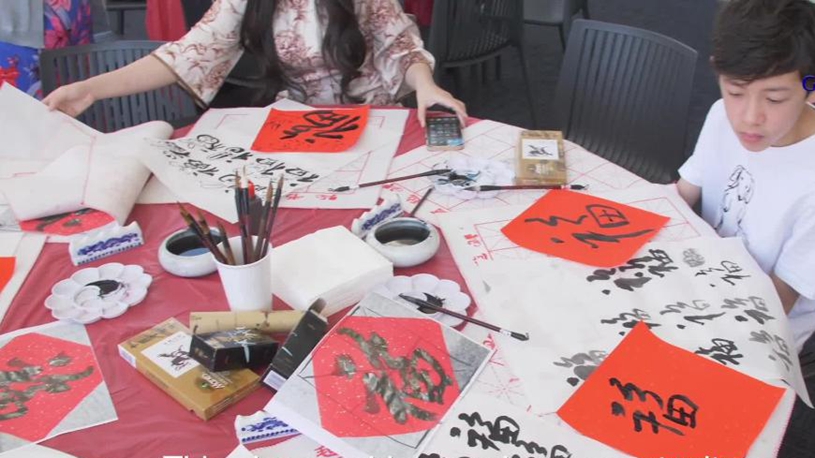* Time-honored brands, which have been through a decades-long or even a centuries-long journey, either serve as a reminder of people's old childhood flavors, or relate to festival traditions and nostalgic memories.
* They are embodiments of China's traditional culture and a majority of them own at least one intangible cultural heritage. It is the traditional skills and craftsmanship passed from generation to generation, as well as credibility, that make time-honored brands endure the changes of the times.
* While some brands have sustained their classic style and ancient beauty, others have innovated their products and tapped into digital platforms to win the hearts of younger consumers.
BEIJING, Feb. 5 (Xinhua) -- Holding two jars of sugar garlic, a gray-haired resident surnamed Guo is lining up at a Liubiju store, a nearly 600-year-old pickle-making brand located on Beijing's Qianmen Street, to pay for the delicacy.
Sugar garlic, or pickled garlic, is a traditional Chinese appetizer with a sweet and sour flavor. "I grew up eating sugar garlic sold by Liubiju and I pair it with porridge, noodles and hotpot. The taste is every bit as good now as it was when I was a kid," Guo said.
For people like Guo, some time-honored brands, including the renowned Liubiju, serve as a reminder of their old childhood flavors, while others such as the Da Bei Photo Studio relate to festival traditions and nostalgic memories.
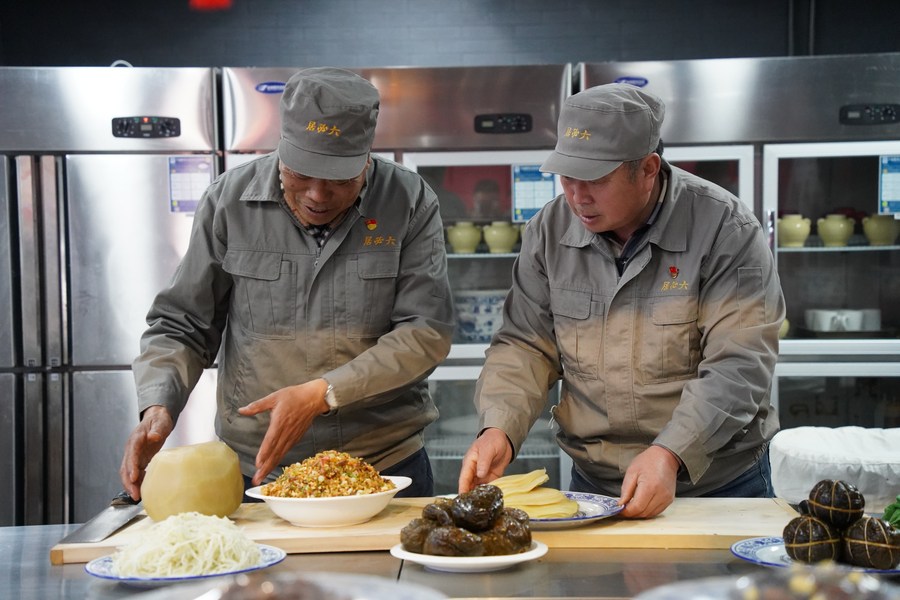
Staff members demonstrate pickle-making skills at the workshop of Liubiju, a pickle-making brand, in Beijing, capital of China, Jan. 31, 2023. (Xinhua/Wei Hongyi)
Most of these brands have been through a decades-long or even a centuries-long journey and have become witnesses to China's commercial development. Data from the Ministry of Commerce shows that China has 701 century-old brands. The oldest one -- Beijing Bianyifang, famed for its specialty roast duck -- has survived for 607 years.
The total number of existing time-honored brands, which are well-known throughout the country and recognized by the Ministry of Commerce, is 1,128, according to Sheng Qiuping, China's vice commerce minister.
Despite the impact of COVID-19, over 70 percent of these brands are still profitable, and around 35 percent saw their sales revenue surpass 100 million yuan (14.9 million U.S. dollars) in 2022, Sheng said.
Already firmly rooted in people's memories of special times, these brands are holding on to their craftsmanship, while also striving to break new ground in terms of technology and products, as they seek to remain relevant in the here and now.
LEGACY, PERSEVERANCE
Time-honored brands are embodiments of China's traditional culture and a majority of them own at least one intangible cultural heritage. Data shows that of the 1,128 brands, nearly 800 are involved with intangible cultural heritage projects, according to the commerce ministry.
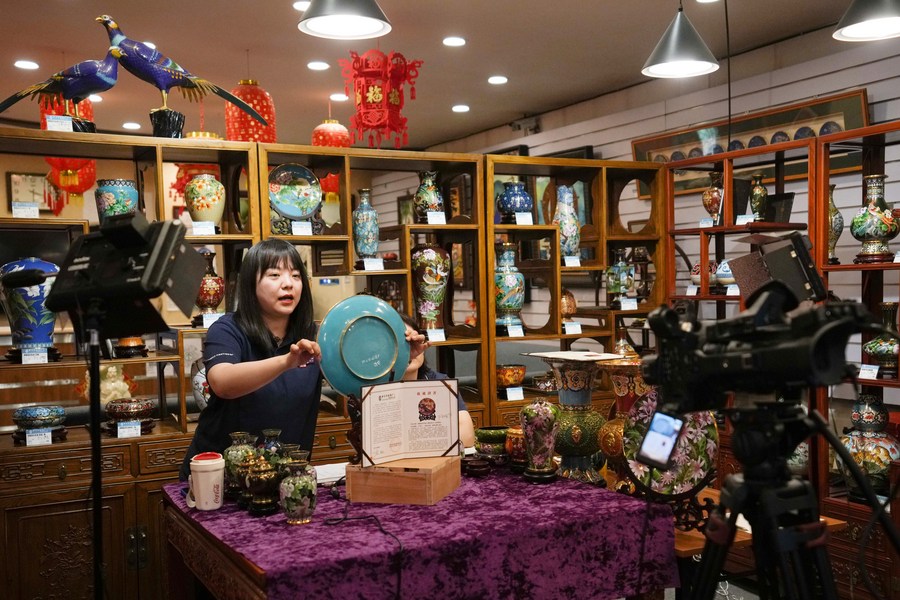
A staff member promotes cloisonne handicrafts through livestreaming at Beijing Enamel Factory Co., Ltd. in Beijing, capital of China, June 18, 2022. (Xinhua/Ju Huanzong)
At Beijing Enamel Factory, a cloisonne ware manufacturer founded in 1956, Luo Shuxiang, a 61-year-old craftsperson, is deftly applying the colored ore powders to objects made of copper, a key step in the process of making cloisonne handicrafts.
Cloisonne, which was widely produced during the Ming (1368-1644) and Qing (1644-1911) dynasties of ancient China, is considered one of Beijing's top traditional forms of artware. China listed this time-honored craft as a national intangible heritage in 2006.
It is a labor-intensive technique that involves over 100 steps to make a finished product. The artisanal practice mainly requires five processes: making a copper body; buckling and inlaying copper wires on the surface in certain patterns; coloring; firing; and polishing. And Luo is the best craftsperson in the factory for coloring the cloisonne.
Luo has been doing this craft for over 40 years and was reemployed after retirement, as she is considered the best at painting vivid patterns in different shades of color on the copper surface. "A single leaf may need six or seven shades of green to make it more lively," Luo said.
One of the cloisonne vases she colored -- "Shengshihuange," literally "singing happily in prosperous times" in Chinese -- was presented as a state gift to the United Nations Office in Geneva in 2017.
When asked about the reason for returning to her job after retirement, Luo said that no process of this craft can be done by machines, except for polishing some regular-shaped products. "I came back to teach more apprentices. The cloisonne craft and Beijing Enamel Factory need more people to inherit the legacy, in order to live on and prosper," Luo said.
It is the traditional skills and craftsmanship passed from generation to generation, as well as credibility, that make time-honored brands endure the changes of the times, according to Li Xiaosong, an official with the Ministry of Culture and Tourism.
INNOVATION, DIGITALIZATION
While some brands have sustained their classic style and ancient beauty, others have innovated their products and tapped into digital platforms to win the hearts of younger consumers.
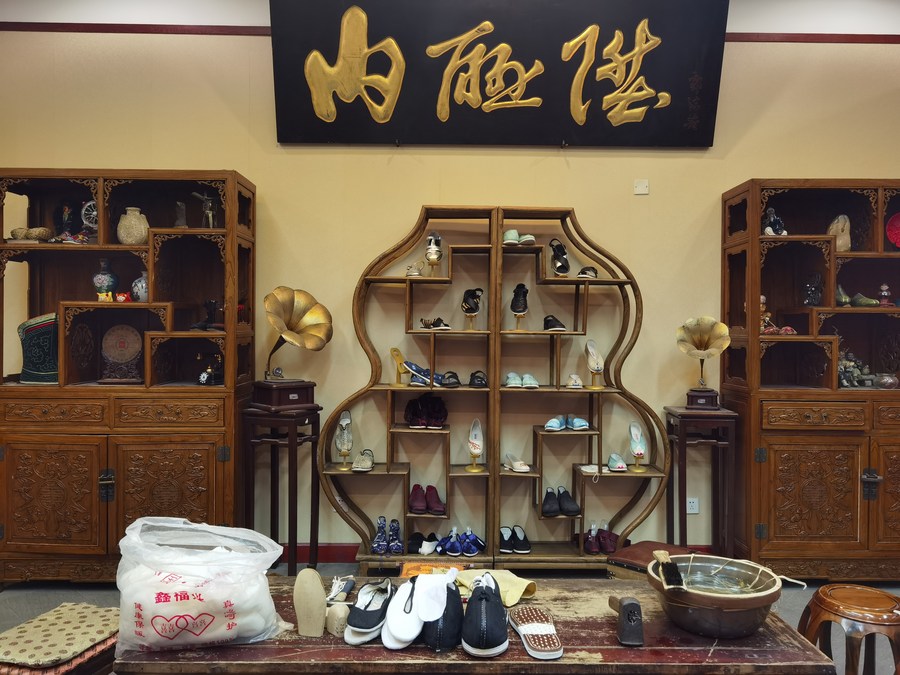
This photo taken on Jan. 31, 2023 shows the traditional cloth shoes at the main store of Neiliansheng, a Chinese traditional cloth shoe maker, in Beijing, capital of China. (Xinhua/Xie Xiyao)
Neiliansheng, a Chinese traditional cloth shoe maker, used to be a symbol of the ancient court nobility and riches with its "thousand-layer" soles and hand-stitched fabric uppers. Now it is revamping itself through association with international brands and with novel elements to catch the attention of Gen Z customers.
The brand inked a deal with Disney in 2016 to feature Mickey Mouse on one of its product lines. In 2021, its sub-brand partnered with Japanese streetwear brand A Bathing Ape, or BAPE, to launch a co-branded collection of cloth shoes featuring BAPE's iconic green camouflage.
The Chinese New Year limited editions released this year with designs based on the image of the rabbit, one of the 12 Chinese Zodiac animals, are very sought-after as well, with some versions already sold out, said Cheng Xu, Neiliansheng's general manager.
Young consumers aged below 25 account for around 10 percent of our customer base, Cheng said. "We wish to gain more popularity among the Gen Z and millennials," he added.
Eyeing wider coverage of young people, other brands such as Beijing Daoxiangcun, a traditional Chinese bakery brand, have turned to digital platforms, a channel it recognizes as being more popular with young people.
Yu Dazhi, vice general manager of Beijing Daoxiangcun, said products sold through live-streaming platforms before the Spring Festival holiday were immediately snapped up when the links for these products were posted.
Pickle maker Liubiju is also exploring digital transformation. Its monthly sales revenue through live-streaming on Douyin, the Chinese version of TikTok, has exceeded 1 million yuan.
Data shows that nearly 350 time-honored brands participated in live-streaming platforms. Live-streaming events of time-honored brands in 2022 topped 50,000, with a combined business volume of 3.5 billion yuan. The figure increased over five times compared with that of 2019.
Looking forward, the ministry will mobilize more chiefs and inheritors of time-honored brands to participate in live-streaming, tell the tales of their brands and showcase traditional crafts, to promote their advancement, according to the vice commerce minister.
(Video reporters: Jiang Sai, Yin Jiajie; Video editors: Wu Yao, Cao Ying, Zhao Xiaoqing) ■

